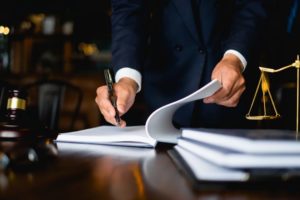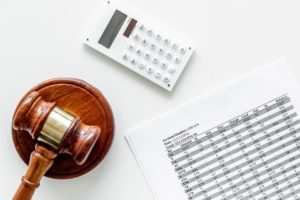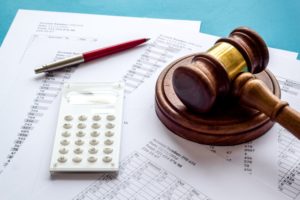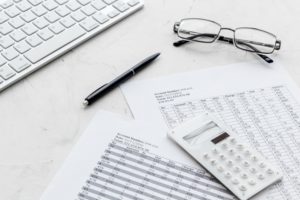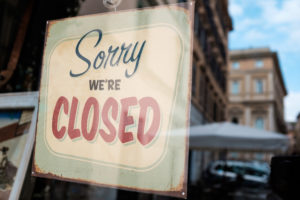
There are certain things you cannot do after filing for bankruptcy. For example, you can’t discharge debts related to recent taxes, alimony, child support, and court orders. You may also not be allowed to keep certain assets, credit cards, or bank accounts, nor can you borrow money without court approval. Further, you may not be able to discharge debts with certain creditors, meaning you have to continue paying even after filing for bankruptcy.
Hundreds of thousands of people struggle with debt each year due to unfortunate circumstances such as unexpected healthcare costs, economic downturn, or loss of income. While filing for bankruptcy can provide an escape from crushing debt, there are consequences to consider alongside the benefits. In this guide, we answer your questions about what happens after you file for bankruptcy. We explore the advantages and setbacks and discuss how our North Carolina bankruptcy lawyer team will help you navigate the legal process.
Do I Need a Lawyer to File for Bankruptcy in North Carolina?
Filing for bankruptcy is not straightforward and can involve both state and federal courts. Unfortunately, applying for the process does not mean it will automatically be granted, and mistakes made during filing can be costly. Working with a bankruptcy lawyer can be beneficial, especially If your case is complex.
We are always here to answer questions and guide you through the legal process.
In practical terms, our lawyers can help you determine the appropriate bankruptcy Chapter for your situation and manage the administration process required by the court. We can also help you protect your assets, manage communications with your creditors, and prevent further debt collection actions when possible.
What Can I Not Do After Filing for Bankruptcy?
After filing for bankruptcy, you may be concerned about what will happen to your possessions or business. What are you not allowed to do or keep once you file? This depends on which type of bankruptcy option you chose, which typically falls under the following Chapters:
Chapter 7
Most suited to individuals, married couples, partnerships, and companies that cannot pay back their debts.
With this option, debts are repaid by liquidating non-exempt assets, meaning no debt repayment plans are involved. During the process, the courts appoint a trustee to oversee your case. The trustee will determine which assets can be sold to pay creditors, including by asking questions under oath about your assets. Any remaining obligations are then discharged, as long as they are eligible.
You can typically keep your home after Chapter 7 bankruptcy, provided your equity falls below specific limits, or you keep up with rent payments for your lease agreement.
That being said, here’s what you’re not allowed to do with a Chapter 7:
- Lie under oath about your financial or property assets
- Keep property that must be used to discharge your debts
- Miss payments to certain creditors in order to keep your home
Our lawyers work hard to help you protect as many assets as possible, including motor vehicles, some equity in your home, household goods, furnishings, and appliances, pensions, work tools and equipment, and welfare benefits.
Chapter 11
Corporations and other business entities often use this complex form of bankruptcy to restructure assets and debts and improve financial affairs. This allows them to repay debts while continuing to operate. However, creditors can also file an involuntary bankruptcy for businesses or individuals with high debt levels.
Cases filed under Chapter 11 enable businesses in financial distress to develop a plan of reorganization which, when approved by creditors, becomes a contract between all of the involved parties. As a result, doors stay open for business, creditors must cease collection efforts, and owners retain control of commercial operations and assets.
The downside of this arrangement is businesses may need court approval before selling assets, borrowing money, or making certain decisions related to expansion and growth. However, our lawyers can help companies to navigate the process and forge a better path forward.
Here’s what you’re not allowed to do with a Chapter 11 bankruptcy:
- Take on additional debt without the permission of the court
- Sell assets without court approval
- Expand the business without court approval
- Break the contract under which you are allowed to retain control of the business
Chapter 13
Also called the Wage Earner’s bankruptcy, filing under Chapter 13 enables individuals with a regular income who have fallen into serious debt to regain control of their finances by completing a debt repayment program over three to five years.
While there are many benefits to filing a Chapter 13 bankruptcy, such as protection from continuing creditor collection efforts, stopping foreclosures, and keeping your personal assets, there are some caveats that can be considered downsides. For example, you cannot:
- Incur further debt
- Use credit or credit cards
- Enter into leases without court approval
Our lawyers work hard to protect your rights and ensure you get the relief you need from debt collection while working towards a more favorable financial position.
Personal Injury Lawyer Near Me 828.286.3866
We Provide Consultations to Help You Weigh All Your Options
Even though it is a difficult decision, filing for bankruptcy can be an opportunity to start anew, provide relief from debt collectors, and take back control of your future. The bankruptcy attorneys at Farmer & Morris Law, PLLC are here to help you do just that.
To learn more about your legal options, contact us for a confidential case review with our team today.



